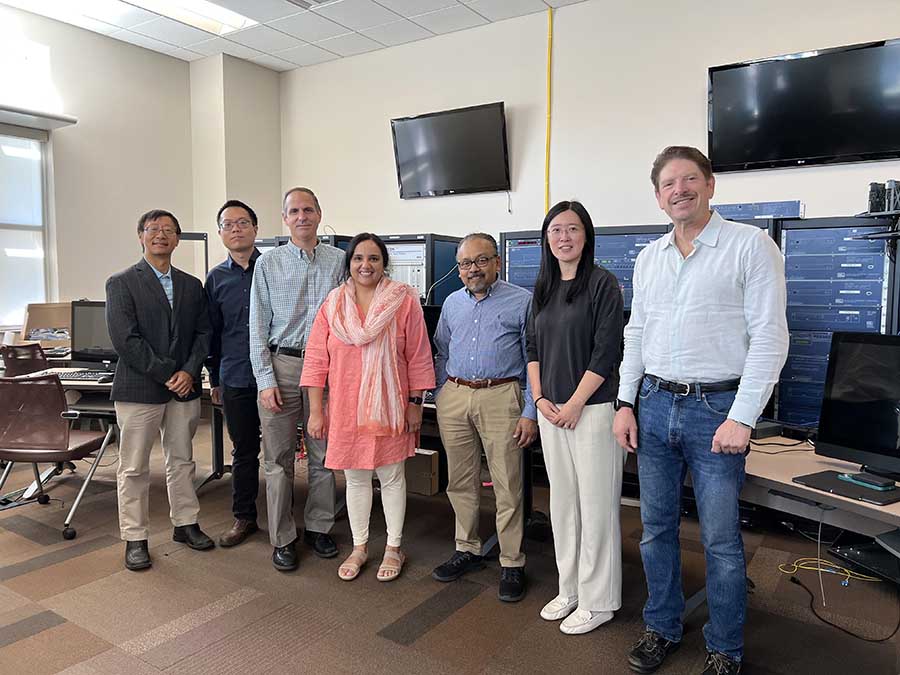
Countries around the globe, including the U.S., are in a race to be carbon neutral by 2050. The key to success will be balancing the need for clean energy with the need for security. A team of researchers led by UNC Charlotte is working to build a more secure and reliable power grid, thanks to funding through the UNC System Research Opportunities Initiative.
The team, which includes NC State University and NC A&T University, will receive $1.5 million during the next three years to build advanced cybersecurity research capacity to better understand how to protect and optimize the energy grid while clean energy sources and production continue to advance worldwide.
To achieve carbon neutrality, power grids will become dependent on renewable distributed energy resources — such as rooftop solar panels and battery storage located near the grids. Some of these storage resources, however, offer intermittent service, such as solar panels' loss of energy production on a rainy day. To manage these potential service gaps, the power will be bundled for distribution across the power system for customers' use in their electrical appliances and electronic devices. But many, in fact millions, of these end-user devices are connected to the internet, giving hackers a new target: the power grid. Research is needed to help protect the power grid from this new source of cyberattacks.
“This new distributed energy resources paradigm represents an unprecedented cyberattack surface with exceptional national security implications,” said Meera Sridhar, principal investigator and associate professor in the College of Computing and Informatics. “By joining with collaborators at other institutions, it strengthens our capacity-building to promote research at the intersection of the power grid and cybersecurity, ultimately finding ways to understand and mitigate attacks to the state’s energy infrastructure before they happen.”
Sridhar is working with Charlotte colleagues from the Willam States Lee College of Engineering: Badrul Chowdhury, professor of electrical and computer engineering; Rob Cox, associate professor of electrical and computer engineering and associate director of EPIC; and Mike Mazzola, Duke Energy Distinguished Professor and director of EPIC.
With colleagues William Tolone, Weichao Wang and Chenglong Fu from the College of Computing and Informatics and other UNC System institutions, they will combine existing infrastructure and research expertise to build advanced cybersecurity research and training capacity into two world-class energy testbeds: a geographically distributed Hardware-in-the-Loop testbed and a simulation-based transmission, distribution and DERs testbed. These developments will support the team’s ability to model power grids to scale, allowing them to test hypotheses and find solutions more quickly.
“Cybersecurity and transformational energy are two of the University's leading areas of research excellence,” said John Daniels, interim vice chancellor for research. “The UNC ROI grant helps support the critical work of this collaboration in keeping our state and nation’s power supply secure while creating a cleaner, more efficient energy source. This work also is vital to the state’s economic engine by providing opportunities for upskilling and reskilling of the workforce to meet the growing needs in power grid safety and reliability.”
The UNC System ROI program is funded by the North Carolina General Assembly to champion some of the state’s most innovative research projects. Designed to support strategically important research, UNC ROI grants are awarded annually to target game-changing projects in six priority areas: advanced manufacturing; data sciences; defense, military and security; energy; marine and coastal science; and pharmaco-engineering. The awards are designed to support multi-institutional projects that promote collaboration and emphasize the unique strengths of individual institutions.